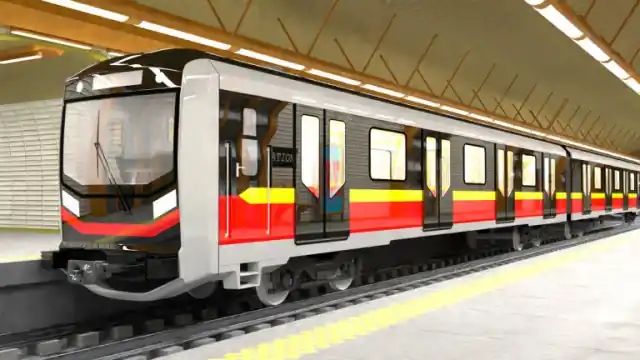
The Metropolitan Municipality of Sofia has approved the acquisition of eight additional metro trains from Czech manufacturer Skoda, further enhancing the city’s public transportation infrastructure.
The deal, valued at 140 million leva (approximately €71.5 million) excluding VAT, will bolster the fleet serving Sofia’s expanding metro network, as reported by Bulgarian news outlet Dnevnik.
Skoda was the sole bidder for this contract, which will primarily benefit Line 2 (“Nadezhda” – “Lozenets”). However, the new trains will also operate on Lines 1 (“Lyulin” – “Mladost”) and 4 (“Obelya” – Sofia Airport), according to details published on the Centralized Automated Information System for Public Procurement (ЦАИС ЕОП) website.
The acquisition is a key component of Sofia’s broader strategy to enhance its metro service as the city’s population continues to grow.
Shifting Away from Russian Trains
The decision to order from Skoda marks a significant shift in Sofia’s metro procurement strategy. Until now, Sofia’s metro system has relied on a mix of Russian-made trains and Siemens trains, which originate from Austria and Poland.
However, European Union sanctions against Russia, requiring that more than 50% of goods must be produced within the EU, have led Sofia’s municipal government to seek alternative suppliers.
Stoyan Bratoev, Director of the “Metropolitan” company, emphasized the importance of the move towards European manufacturers.
“We are responding to the changing geopolitical landscape and ensuring that our public transportation system is in line with EU regulations. Collaborating with Skoda aligns with our goal of modernizing Sofia’s metro system.”
Meeting Growing Demand
The new trains are part of a larger effort to address the rising demand for metro services in Sofia.
According to Bratoev, passenger traffic has surged by 20-25% over the past two years, especially on Line 2. This sharp increase has put pressure on the current metro infrastructure, prompting the need for more frequent services.
“Our goal is to reduce rush hour intervals to four to four and a half minutes. The introduction of new trains will help us manage the increased ridership and improve overall waiting times,” Bratoev said. The city’s growing population and increased reliance on public transport have made these upgrades essential.
Skoda is already under contract to deliver eight metro trains to Sofia by the summer of 2023, and this new order will see the company continuing to support the city’s transit system.
The new trains will be integrated with the existing fleet, ensuring continuity and consistency in service across multiple lines. Additionally, eight trains for Line 3 have been ordered from Siemens, further diversifying the city’s metro fleet.
Future-Proofing Sofia’s Metro
This latest purchase is part of a broader plan to expand Sofia’s metro capacity over the next two decades. In total, 24 new trains will be added to the system to accommodate the city’s future transit needs.
Funding for the acquisitions is being sourced from the Metropolitan Municipality’s budget, reflecting the city’s commitment to sustainable urban development.
With the new Skoda trains expected to improve efficiency and service intervals, Sofia’s metro system is poised to meet the needs of a growing population and ensure smoother commutes for its residents for years to come.
